 Robert L Note: In case you may be wondering why I am reprinting the entirety of a Globe Sports article here at the site, rather than simply linking to it, it is because certain online news chains have a policy of archiving their pieces mere days after publication. If you want it anytime after, it's pay up baby!
Robert L Note: In case you may be wondering why I am reprinting the entirety of a Globe Sports article here at the site, rather than simply linking to it, it is because certain online news chains have a policy of archiving their pieces mere days after publication. If you want it anytime after, it's pay up baby!This piece on Kovalev by MacGregor is so good, it deserves to be read and read over by Habs fans for years to come, hence it's inclusion in whole here.
From the Saturday March 22 Globe and Mail
E-mail Roy MacGregor at rmacgregor@globeandmail.com
Read his bio
A New Man by Roy MacGregor
March 22, 2008 at 12:09 AM EDT
He has no idea what others see in him.
Mark Messier, who played with the teenage Kovalev in New York, says he is a true "thoroughbred." Wayne Gretzky, who watched the now 35-year-old Russian when Kovalev's Montreal Canadiens met Gretzky's Phoenix Coyotes, says the veteran forward's play this season is at a level that deserves consideration for the Hart Memorial Trophy as the NHL's most valuable player.
"I don't know," Alexei Kovalev says.
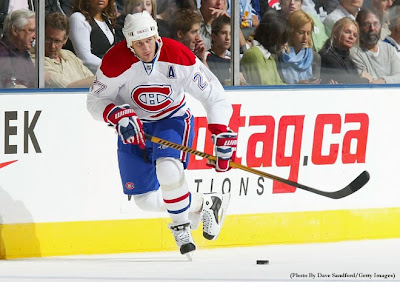
He has no idea what it looks like, but does have a strong sense of what it feels like when everything comes together exactly right, as it has so often this surprising season in Montreal.
When he tries to explain the sensation of skating so effortlessly, it does not even require thought, he talks of that one moment of weightlessness he looks for when he pulls back on the controls of a Cessna 172 and climbs until the plane is perfectly vertical, the engine on the verge of cutting out and, just for the most fleeting of moments, the G-force lifts his body clear of the seat and he finds himself floating in space. But when he thinks of what it is like to control hockey's most potent power play, he no longer thinks of airplanes, but of helicopters.
"Manoeuvrability," he says.
"I love the way you can make them go anywhere."
He has been known to rent helicopters and do nothing but 360-degree spins down the length of an open runway. He has mastered, he says, the difficult move of taking off and then backing down on precisely the same plane to land the machine on the very dime on which it took off.

He is so in love with precision it is even reflected in his nickname: AK-27. He is Montreal's attack weapon, No. 27 on the back of Les Glorieux, who are once again glorious.
Only short months ago, the experts were saying the Canadiens would, once again, miss the playoffs. Kovalev, they said, was aging fast and slowing down, a $4.5-million (all currency U.S.) disappointment last season, in which he scored only 19 goals and seemed uninterested in his team and listless in his play. The smart move would be to get rid of him. Today, Alex Kovalev is leading the team with 77 points, including 33 goals, and quarterbacks a dominating power play that has put the Canadiens in first place in the Eastern Conference before last night's games. The team is not only going to make the playoffs, but may well be Canada's best hope to win the Stanley Cup, which has not landed on this side of the border since the Canadiens won in 1993.
In this year of the Russians in the NHL — 22-year-old scoring leader Alex Ovechkin in Washington, 21-year-old sophomore star Evgeni Malkin in Pittsburgh and 24-year-old sniper Ilya Kovalchuk in Atlanta — the relatively elderly Kovalev often passes notice in the media. But not among those who, like Gretzky, understand the true meaning of a player deemed most valuable to his team.
 What Kovalev has managed in his 15th NHL season is astonishing.
What Kovalev has managed in his 15th NHL season is astonishing.He has taken a line composed of himself, an aging veteran, third-year centre Tomas Plekanec and Andrei Kostitsyn, in his first full year with Montreal, and he has turned them into a line ranking with the likes of prime veterans Spezza-Alfredsson-Heatley in Ottawa and Datsyuk-Zetterberg-Holmstrom in Detroit.
But how he did it is even more amazing.
He used Tiger Woods as his model.
Alexei Kovalev is stubborn. To say he follows his own mind is to understate the situation. When the native of Togliatti, Russia, arrived in New York to play for the Rangers, he thought he could decide his own ice time. When head coach Mike Keenan thought he could teach the youngster a lesson by waving him to stay on the ice at the end of another ridiculously long shift, Kovalev took it as a compliment for how well he was playing.

Slava Kovalev, Alexei's father, had been a weightlifter and wished his son to follow in his footsteps. He even installed a chinning bar on his child's bedroom door so the youngster could work out before bed and as soon he woke up in the morning.
When Alexei insisted on hockey instead of weights, his father devoted his spare time to creating the perfect hockey player, organizing a training regimen that would knock out a grown man, let alone a growing child.
But very soon it all seemed for naught. When Alexei was 8, a routine medical checkup discovered a heart abnormality, a problem with rhythm, and his parents were advised to take him away from hockey and let him to skate "easy" once a week, at most.
"I'm not stopping," the determined eight-year-old told his mother.

He decided he would repair his own heart. He set up a strict diet of fruits and vegetables for himself, made sure he got extra sleep, drew up his own exercise program and returned to hockey.
The condition, he said, still exists, "but it's not dangerous."
He was remarkably gifted as a child: bright in school, exceptionally musical and a champion swimmer. But it was hockey that he excelled at, to the point where, just as in Gretzky's case, others grew jealous of him and coaches regularly berated him for what they saw as selfish play. There were many tears, and he grew increasingly shy and quiet.
Kovalev's early experiences with coaches were not always good. One particularly tyrannical coach in Togliatti put 14-year-old Kovalev's team through such a gruelling workout — first running 15 kilometres cross-country in sweltering heat — that one of his teammates and best friends dropped dead when the coach made them practise immediately after.
Last season, it seemed Kovalev had had an irreconcilable falling-out with Canadiens coach Guy Carbonneau when a Russian sports newspaper ran an interview claiming to quote Kovalev at length criticizing the Montreal coach for his defensive systems and claiming Carbonneau was anti-Russian.
Kovalev, who had never before backed down from controversial statements, denied there had ever been any such interview, and no tapes were ever produced. He said it never happened, though not many then took him at his word.
Still, Kovalev could hardly blame Carbonneau for his season even if he had wished to. He played badly. He was heavy — playing at 225 pounds, when he had come into the league at 185 — and he was playing a rather jazz-like Russian version of the game (he prides himself on never having a plan) that simply was not working in Montreal.
"He was playing a style that had a high degree of difficulty with too low a degree of success," Montreal general manager Bob Gainey said.
Those close to the team point to a long "walk in the park" — actually a stroll along the Montreal waterfront — with Gainey early last summer as the pivotal moment that turned Kovalev's attitude around.
"It's not like I stopped playing or anything," Kovalev said. "But people thought I had lost interest. Bob said that.
"We sat and talked. He asked me: 'What is the problem? What do you think?' Bob just let me talk. He solved the problem. I needed support and I needed people to believe that I could do the job."
Gainey, however, believes something else played a more significant role. Not only had Kovalev's NHL career taken a dive, his international career seemed at an end.
Kovalev is one of the more patriotic Russian stars, having won gold in the world junior championships, gold in the Olympics in 1992 and three gold medals in world championships — the last time as the captain of the 2005 Russian team.
Last spring, he wasn't even invited.
 "I think it was far more these factors," Gainey said, "than it was any walk in the park with Bob Gainey. He's proud and he's resilient. He wanted to prove himself."
"I think it was far more these factors," Gainey said, "than it was any walk in the park with Bob Gainey. He's proud and he's resilient. He wanted to prove himself.""I wanted to prove something," Kovalev agreed. "I couldn't do anything about what people had said about me, but I could do something at the world championships. It was my only chance. When I didn't get asked to play, that really kind of killed me.
"I was lost."
But then, a third factor, almost by accident, came into play. The highly sensitive Kovalev had his feelings stung by his own agent, Scott Greenspun.
When Kovalev explained to Greenspun that he planned to work extra hard, get in great shape and show them that he was good as ever, Greenspun, meaning well, happened to say, "Don't forget, Alex, you were 19 then."
"It really pissed me off," Kovalev said. "I said, 'Just watch.' "
He tore himself apart and rebuilt from scratch. He began working out almost fanatically. He lost weight and added muscle. He tracked down and found old game tapes of how he had played in his prime with the New York Rangers and the Pittsburgh Penguins and he studied the tapes, took notes and then set out to put what he had learned into practice.
If one of his sporting idols, Woods, could take apart his swing and rebuild it, then Kovalev would do the same in hockey.
Not only would he adjust the way he played and fix the shape he was in, he would recast his attitude. Sullen and angry the season before — partially blaming himself for the disastrous addition of another Russian, Sergei Samsonov, to the Montreal lineup — he came into this season determined to serve as a mentor to the younger Russians in the organization: the Kostitsyn brothers, Sergei and Andrei, and defenceman Andrei Markov.

"He's cross-cultural now," Gainey said of the Russian. "He can translate those things — not necessarily words — for the others."
"The young guys see his hunger on the ice," Markov added, "and they try to do what he's doing. He's a good example."
Led by Kovalev, all the Russians — along with Plekanec, the young Czech — have been pivotal players in Montreal's impressive season of recovery.
"He's like a dad to them," said Murray Wilson, the former Hab who now does colour commentary on the Montreal broadcasts. "It's like they're joined at the hip — five guys all surrounding Alexei as they walk out of the rink. He's the father image for those guys."
He also reached out to fans, at one point flying his Cessna 414 from its base airport at White Plains, N.Y., to a small town in the Gaspé region where the mayor, a fanatical Canadiens fan, had invited the star. He arrived with signed jerseys and sticks and stayed for days — at one point smacking up the mayor's beloved motorcycle.
But no matter, the story got out and impressed people. "There are players who come from right here in Montreal," one hockey reporter said, "who wouldn't make an effort like that."

Booed in 2006-07, he became a name they chanted in 2007-08.
"He has been our best player," Gainey said. "Our MVP."
When captain Saku Koivu was briefly injured, coach Guy Carbonneau took the captain's C and gave it to Kovalev when the team was headed to New York on a trip.
Why?
"He deserved it," Carbonneau said.
When Kovalev is on his game, it seems he was created solely to skate and stickhandle and shoot.
"What was it they used to say about Tom Watson?" Gainey asked. "That 'his hands were made to fit a golf club.' Same for Kovalev in hockey. He looks like he was built for the game."
What he does in games often pales to the wild and inventive plays he will come up with in practice. He considers himself a freelancer, a player so creative he delights in having nothing in mind until the precise moment when something happens. He is at his happiest when he is surprising even himself.
"He does things with the puck you've never seen before," Montreal's sensational rookie goaltender, Carey Price, said. "It just seems impossible what he does sometimes.
"But for him, it's just like walking and chewing gum."
Kovalev's centre, young Plekanec, says there have been times on the ice when he and young Kostitsyn find themselves laughing so hard at plays Kovalev has just pulled off that they forget they are part of the equation.
"You just start laughing on the ice," Plekanec said. "You can't help yourself. We were playing Boston and he goes through half the team, drops his glove, leans over and picks it up — and then stickhandles through two more guys."
"You can't quit on the play, can you?" Kovalev said with a smile. "That's what I was taught. Never quit on the play. Never quit."
He didn't, and both Alexei Kovalev and the Montreal Canadiens are better for it. He talks now of playing in the next Olympics, of playing enough more years that now that he has passed 1,000 NHL games, he might reach 2,000 — and will be a member of the Canadiens when they bring the Stanley Cup home to its rightful resting place.
"I think anything is possible in my life," he said.
"Everything comes unexpected."
.










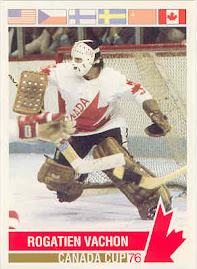
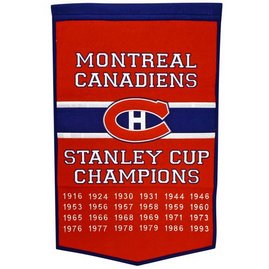







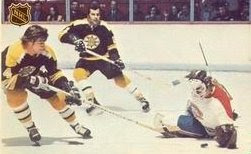



















































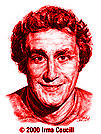



































































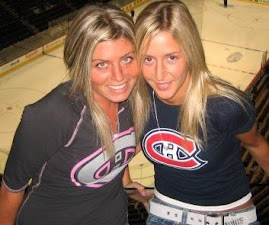
















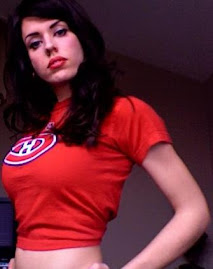

No comments:
Post a Comment